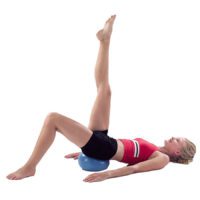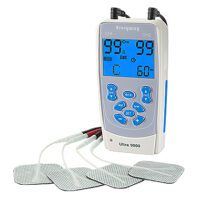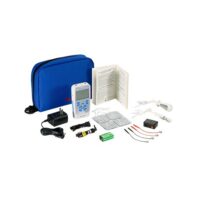TMJ Treatment: Finding the Optimal Approach

What is TMJ Dysfunction?
TMJ dysfunction, or temporomandibular joint disorder, affects the jaw joint and surrounding muscles. Treatment depends on several factors, including the diagnosis, specific nature of the dysfunction, and its duration.
Effective Treatment for TMJ Opening Disorders
Enhancing jaw movement techniques often yield positive outcomes for TMJ opening disorders. These techniques include jaw muscle massages, dry needling, acupuncture, muscle relaxation exercises, and joint capsule stretching methods. Your physiotherapist typically administers these, ensuring a personalised approach to your condition.
Managing TMJ Closing Disorders
TMJ closing disorders, such as bruxism (teeth grinding), often fall within the domain of your dentist. Occlusion splints or bite plates can help if needed.
When to See Your Dentist or TMJ Physiotherapist?
For jaw joint pain, clicking, or limited motion during mouth opening, consult a TMJ physiotherapist. For teeth clenching issues, your dentist can provide guidance. Seeking advice from a TMJ health professional is crucial as they can guide you toward the most appropriate care pathway if required.
Physiotherapy TMJ Treatment
Following a thorough assessment, your TMJ physiotherapist will initiate corrective measures. The effectiveness of TMJ physiotherapy primarily stems from its ability to address movement disorders related to muscle and joint control.
Prompt Relief through Physiotherapy for TMJ Dysfunction
A silver lining is that your TMJ physiotherapist can begin treatment for your TMJ dysfunction, muscular tension, or coordination concerns on the same day as your assessment. If physiotherapy is appropriate, you may experience significant improvement or even complete resolution after your initial treatment session.
If physiotherapy isn’t projected to be effective, a referral to the most suitable healthcare professional for a swift resolution will be provided.
Positive Prognosis for TMJ Treatment
Conservative treatment typically yields positive outcomes for most patients, with symptoms potentially improving even without intervention. A study by Field in 2012 highlighted the efficacy of conservative TMJ physiotherapy, with 75% of the TMD group experiencing resolution within three months. Most patients see improvement within weeks of starting TMJ treatment. This contrasts with the slower resolution observed in a non-physiotherapy treatment group studied by Rammelsberg in 2003, where only 33% of TMD sufferers experienced spontaneous resolution over five years.
Addressing Locked Jaw Concerns
A locked jaw, whether temporary or permanent, is distressing. Your TMJ physiotherapist can often alleviate this through gentle manipulation. If manipulation proves ineffective, consultation with an Oral Surgeon may be necessary, potentially leading to manipulation under anesthesia or a surgical procedure known as arthrocentesis (joint washout). Open surgery, reserved for chronic cases, is rare and mainly aims at identifying and removing physical obstructions in permanently locked jaws.
TMJ Physiotherapy Treatment and Targeted Exercises
Tailored TMJ exercises and treatments include:
- Enhancing posture and neck care.
- Incorporating relaxation exercises.
- Facilitating muscle lengthening and jaw muscle massages.
- Administering TMJ joint mobilisation.
- Correcting TMJ movement patterns and timings.
- Employing various exercise levels, from passive to active-assisted to fully active.
- Engaging in TMJ stabilisation exercises.
- Exploring options like dry needling and acupuncture.
To optimise benefits, follow specific TMJ exercises prescribed after a comprehensive TMJ assessment by your physiotherapist.
Steering Clear of TMJ Dysfunction Triggers
Until you consult your TMJ physiotherapist, avoid the following triggers:
- Uncontrolled wide-opening actions, such as yawning.
- Biting into hard foods, e.g., carrots or apples.
- Consuming challenging items like burgers or hard rolls.
- Engaging in gum-chewing.
- Succumbing to nail-biting tendencies.
- Leaning on the jaw.
- Mitigating stress.
- Refraining from clenching pens, pencils, e-cigarettes, or cigars.
What to Do?
Each instance of TMJ dysfunction presents unique facets. Consulting a Craniofacial specialist, dentist, or TMJ physiotherapist for a professional evaluation is recommended.













































